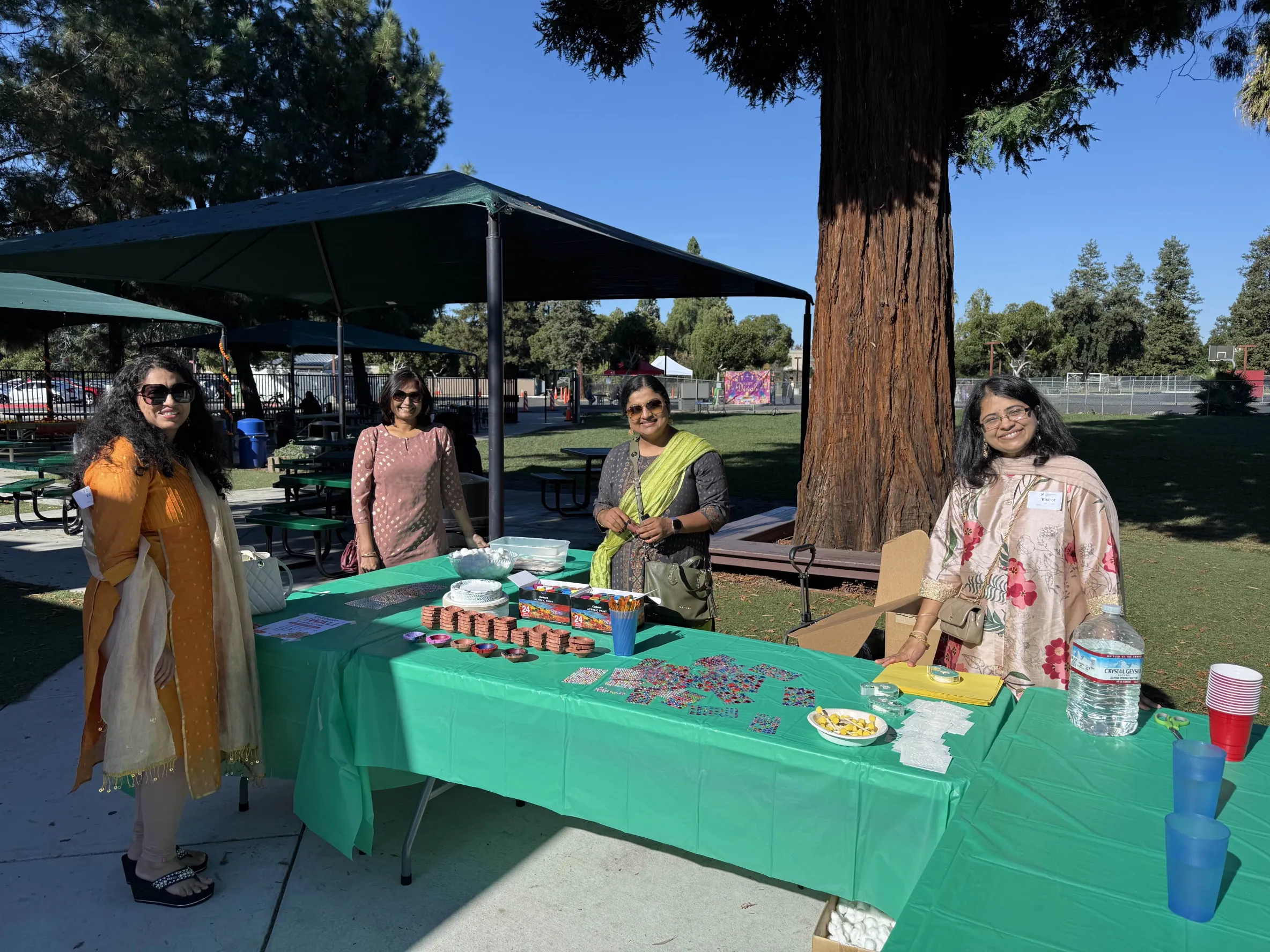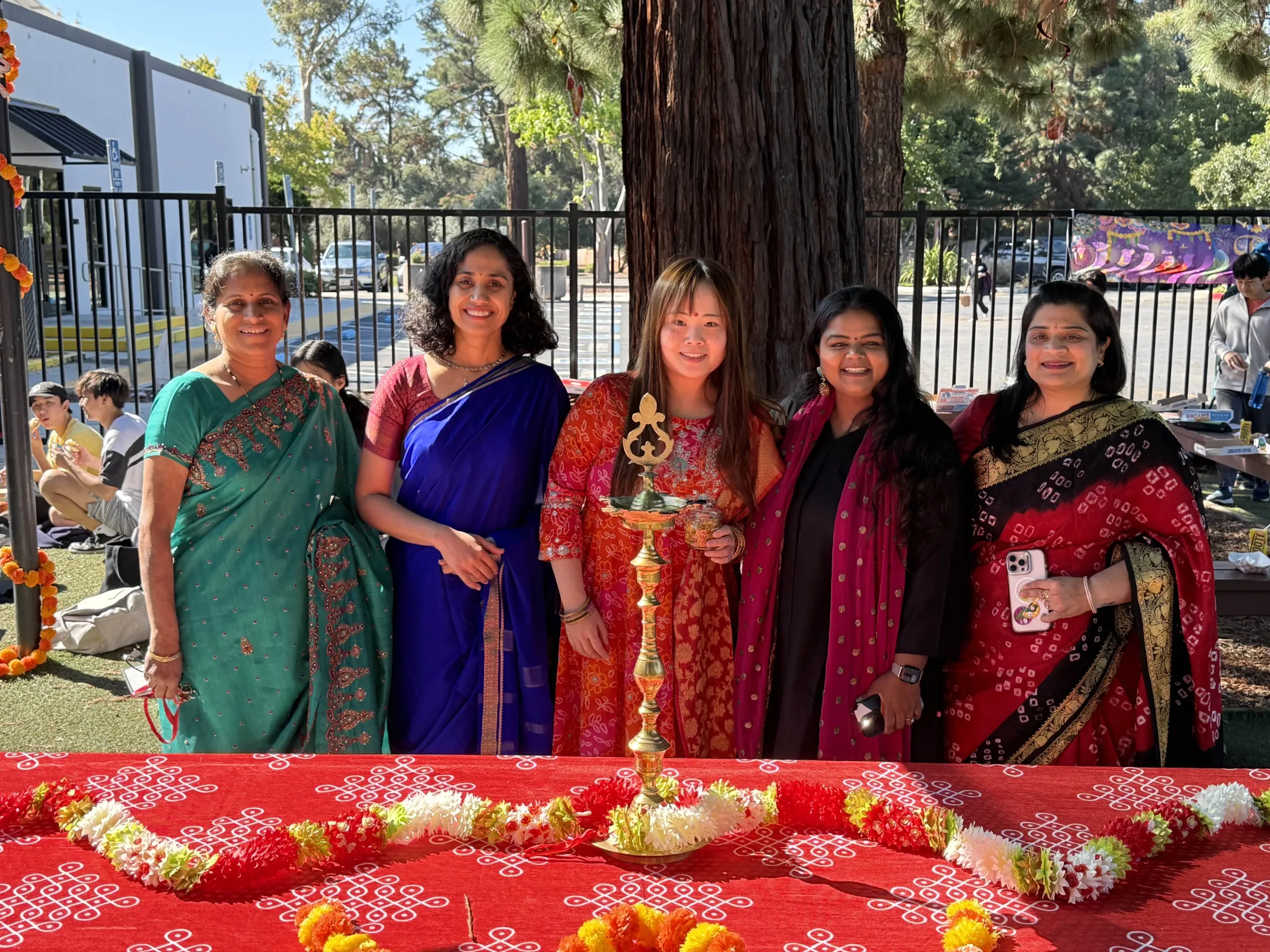The Parent Volunteers Behind the BIFU Diwali Event

"I always look forward to the Diwali event," reflects Tara Arun (11). "It's just really fun to dress up and enjoy the festivities."
The Diwali celebration is one of the most anticipated events at BIFU. It gives students of all backgrounds a chance to celebrate the Indian festival of lights, color, and the triumph of good over evil. The event itself involves many smaller activities, including bingo, mehndi art, and the aforementioned flash mob. Consequently, it takes a lot of time, patience, and effort to plan.
“The planning [starts] usually at the beginning of the school year,” says parent volunteer Deepa Mitta. “[And] we always get busy a week before.”
Deepa Mitta founded the Diwali event four years ago and has acted as its main coordinator since then.
“They used to [do] a lot of other school events, so that made me think, why can’t I lead the Diwali event?” she reflects. “With my interest, I started.”
As the main coordinator, Mitta acts both as the connection between the volunteers and the school as well as the overseer of the entire parent committee.
“There will be [people] who oversee and will be a direct contact to the school; they will plan the high-level activities,” she says. These “high-level activities” include budgeting and organizing the event date with the school. “[Then], we’ll ask the parent volunteers ‘Who wants to lead it?’, and they will be the direct contact to them, [the overseers], and the rest of the parents.”
One of these specialized parent volunteer leaders is Harneet Kaur, who is responsible for all the food and drinks at the event.
“I have to plan from scratch,” she says. “...making sure everything is covered, including the utensils, the cutlery, the food, the deliveries, the drinks… return gifts also.” Furthermore, she reflects that “[The hardest part] is actually going to places and getting the estimates and making sure we have [a] coverage of vegan, vegetarian—all types of food; I dedicate weekends to finish the activities.” However, despite the busy and sometimes exhausting nature of event planning, Kaur still enjoys both the Diwali event and the organizing process overall.
“It’s fun to kind of organize the whole thing; in general, I like doing it.”
Swati Patil organized the decorations and photographs for the event.
“We decorate the front office, teachers lounge, and the quad area,” says Patil, “With what would signify or symbolize Diwali: garlands, some ethnic pieces, wall decor, table covers. We also set up the photo booth this year.”

The parent leader for decorations and photography, Swati Patil, said that the hardest parts of her role are scheduling with other parents, since “Everybody has their day job [and] their parental responsibility,” and “...collecting and returning the decor items,” since many of the decorations are given to the school by parents for the event and therefore must be returned to their owners right after. However, she too enjoys organizing the event, due to the opportunities for creativity it gives.
“Everybody has a different idea, right?.. it’s all about creativity… there are so many ideas float[ing] around and the fun part is it’s the amalgamation of multiple ideas that we see in the end.”
Although volunteering takes lots of time and effort, the parent volunteers of BIFU do it anyway because they believe the event is important for the BIFU community in various ways:
“[Teachers] take care of our kids the whole day, so of course, we as a community, have to give something back to them,” says Kaur.
“Festivals are the one beneath the joy,” adds Mitta. “We always go crazy in terms of how to make it very fun. We kinda go back to our childhood in terms of asking [What] are the events we want to organize? Will the kids like it?”
“[We] do it because [we] believe in community work,” Patil concludes. “Bringing everybody together as a community has a great impact; the connections that we make, the conversations that we have, the simple activities that we do together, events like this [are] a great reminder [of] how we can all be together and enjoy our different cultures.”